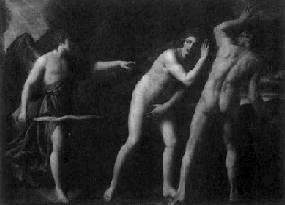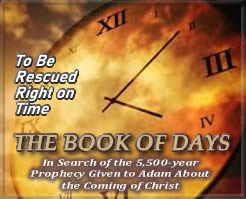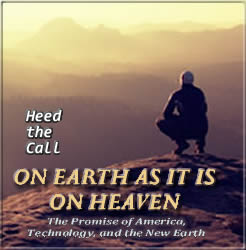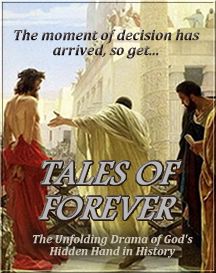A New Democracy of Scripture
Rediscovering What Has Been Lost
The year 2017 marks the 500th anniversary of Martin Luther nailing his Ninety-Five Theses to the door of the Castle Church in Wittenberg, Germany, an event that ushered in the Protestant Reformation. To a large degree, the revolution that Luther ignited has had a decidedly huge upside for humanity, the most important being a return to the supremacy of the written word of The Bible, which was subsequently no longer viewed as the sole property of the hierarchy of the religious establishment. As a result, a new way of relating to the God of Scripture was inaugurated, a way that was not so much a new way at all but was really a rediscovery of an old way that had been lost. Unfortunately, the downside of such a revolution has been that, although Luther had hoped his message would facilitate a reunion of the faithful, history itself has testified to an even greater degree of divisiveness since Luther’s efforts. As a matter of fact, not only did Lutheranism open the door for a plethora of denominational divides, it never even sought to initiate a reconciliation with the Eastern Orthodox Church. So, at a critical moment in human history, instead of providing a message that united the Church as a whole, the historic reality of the last five hundred years is actually quite the opposite of what Luther had in mind when he nailed his pages to that church door.
But such is the price of freedom, and never more so than when it involves freedom of religion. Were it not for such freedom, epitomized by the uniquely American establishment of religious freedom, humanity would undoubtedly be much worse off than before the Protestant Reformation. In this anniversary year, then, it is fitting that we look back and fearlessly assess the good, the bad, and the ugly of what constitutes the historical reality of this thing we remember as the Reformation. In doing so, it is of the utmost importance that we should in turn ask ourselves: Could there yet be a new message that might further this noble cause of religious freedom toward a true unification of believers, as opposed to one that continues to divide them? In other words, what might launch the next reformation of a Church that as much as it once needed to be set free from institutional control is now in need of a common point of unity? And should anyone insist that such a goal is beyond the scope of human endeavor, one only need cite the following verse in The Gospel of John. Jesus prayed: “I do not ask this for My disciples alone but for all those who will believe in Me through their message, so that all of them may be one, as You, Father, are in Me, and I am in You. May they also be one in us so that the world may believe that You sent Me.”1 Unless I am entirely mistaken, Jesus assumed three very important things here. First, He, His disciples, and those who believed in Him through their teaching are “one.” Second, He and God, the Father, are “one.” And three, when all those who believe in Him are seen as being “one,” an onlooking world will finally come to the realization that God really did send Jesus.
Story Continues Below
To hear Kent and Zen continue their discussion concerning the implications of the 5,500-year chronology from Adam to Christ as it pertains to the faithfulness of God, CLICK BELOW.
Story Continues From Above
So, considering that Jesus Himself anticipated such a seemingly unattainable outcome, again I ask: What new message might launch the next reformation and thus impel a worldwide Church, known primarily for its bitter divisiveness, toward a unification so critical in the view of Christ? Quite simply, I suggest that if a return to the unadulterated word of God provided the jumping-off point for the last reformation, why not look to a similar foundation for the next. But whereas an unforeseen consequence of the last paradigm shift in theology was to further pigeonhole which books were considered inspired by God, why not this time be as committed to the democratization of the written word as to those individuals whom God intended to benefit from that word. In short, let us do all that we can to establish nothing less than “a new democracy of Scripture.” After all, if the Church in ages past was found to be so wrong about whose authority should be deemed the ultimate authority in God’s view, might we not learn the same lesson about which books of The Bible should be considered acceptable. And in allowing for this new democracy of Scripture, might we finally do away, once and for all, with the same virulent forms of suppression, ostracization, and persecution that clearly hinders the unity so important in the mind of Jesus?
If the world were ready for such a thing, then imagine its response to a book that was written with all of the aforementioned ideas in mind. Fortunately, such a book does exist, a book that seeks to illuminate the written word of The Bible with the sole purpose of revealing a God Who is utterly in control of human history. It’s called Tales of Forever: The Unfolding Drama of God’s Hidden Hand in History. Unlike most Christian books, however, it is not a book that emphasizes what God does for Christians in the here and now. By that I mean it does not focus on human beings per se and their immediate needs; it’s not about blessing pacts, or finding the right marriage partner, or how to make your life happier. This is not to say that all these things can be attained as a by-product of reading a book on God’s control over history. Certainly when one embraces the total message of Tales of Forever, which speaks of God’s mastery over every stream of life, it cannot help but elicit a renewed sense of faith in such a God. Instead, this book hones in on those points just outlined in the preceding discussion. As we just noted, the Reformation has already succeeded in democratizing the people of God; what is now needed more than ever is a democratization of God’s word. And to accomplish such a Herculean feat, Tales of Forever seeks to provide a revolutionary approach to understanding the people, places, and artifacts of biblical history via a two-fold presentation that uniquely embraces both a documentary-style and dramatically-oriented analysis. The result is a totally original view of history that transcends typical forms of interpretation by way of a message of universal significance.
As such, this new view of history provides an unprecendented tool in enabling scholars and laypersons alike to interpret the canonical books of The Bible in such a way that the longstanding issue of translation errors will be considered a thing of the past; to determine the validity of other biblical books that have over time been deemed non-canonical for reasons more politically motivated than anything else; and to re-evaluate the meaning and purpose of certain sacred artifacts that have, like their textual counterparts, been considered important at various times throughout history, but which have in modern times been dismissed as no longer containing any real spiritual significance.
In the process of doing this, we will overturn Western biblical chronology as it has been acknowledged for the last five centuries, which can be shown to have incorporated a timeline that was alien to the first fifteen centuries of Christian theology, particularly as it pertains to biblical texts such as The Septuagint Bible and The Book of Jubilees; to sacred artifacts such as The Ark of the Covenant, The Spear of Destiny, and The Shroud of Turin; and to sacred monuments such as The Great Pyramid of Giza.
And in demonstrating this, we will shed much-needed new light on the relationship between the Western Canon of Scripture and certain books deemed apocryphal, such as The Secrets of Enoch, The First Book of Adam and Eve, The Book of Jasher, and The Gospel of Nicodemus, particularly as they pertain to the study of biblical typology; and on the historical significance of other lesser-known biblical artifacts such as The Garment of Adam, The Image of Veronica, and The Seamless Robe of Christ.
In re-examining history in this manner, one gains fresh insight into the hidden harmony of the apparently random details of biblical history which have thus far gone unnoticed. The reward is nothing less than the unveiling of a rich deposit of lost truths of The Bible that have until now been lying about like so many jewels just waiting to be discovered.







